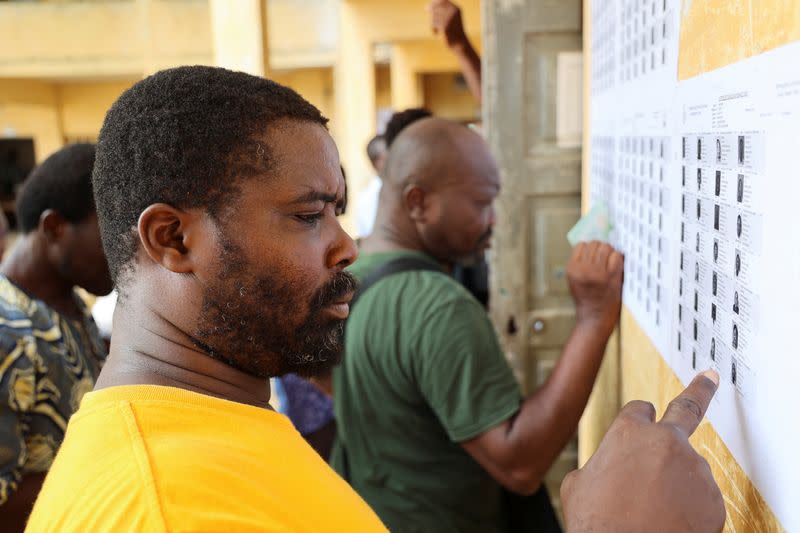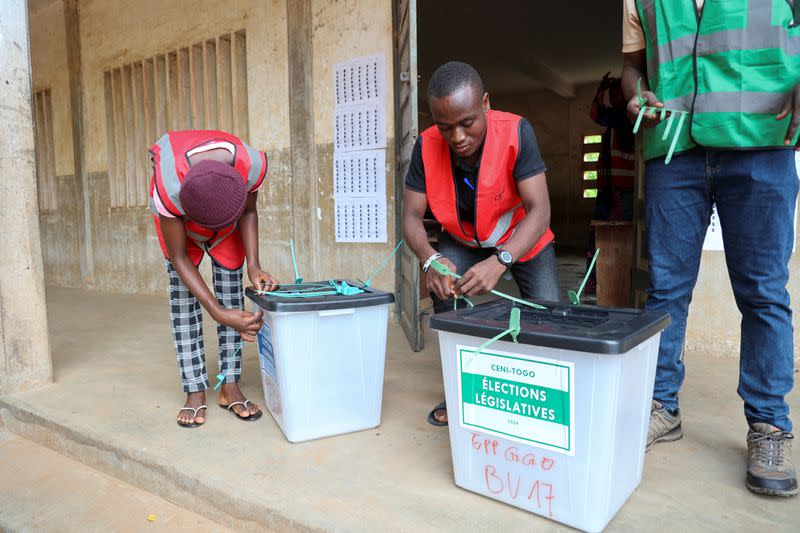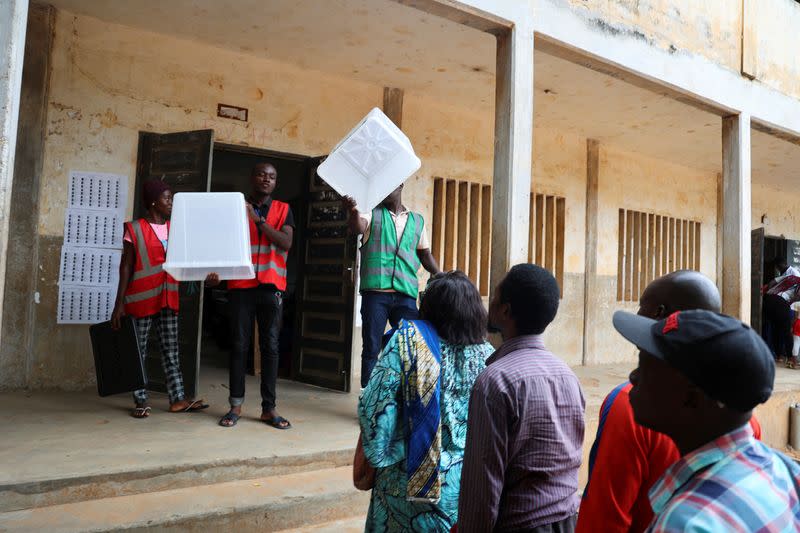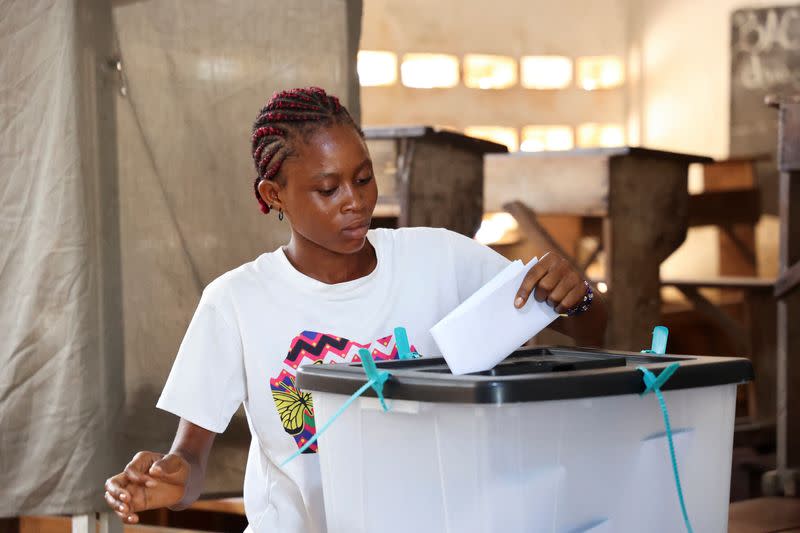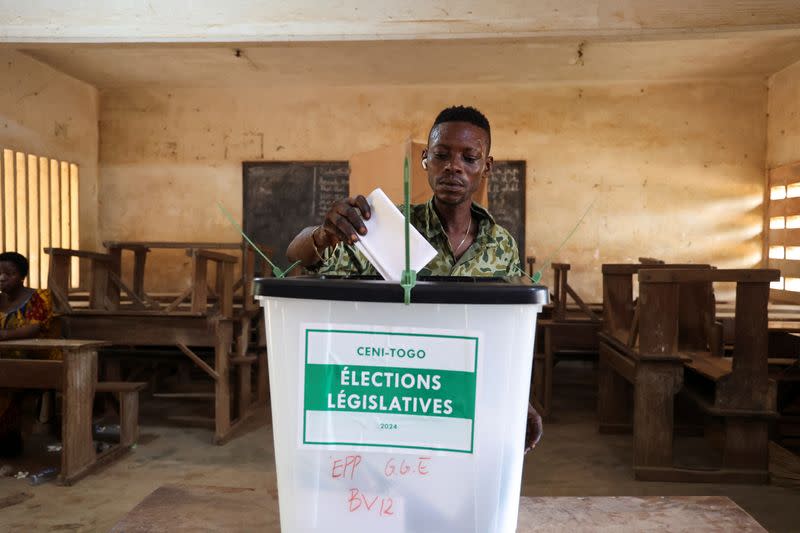Togo votes for a new parliament with stronger say in governance
- Oops!Something went wrong.Please try again later.
- Oops!Something went wrong.Please try again later.
By Alice Lawson and Noel Kokou Tadegnon
LOME (Reuters) -Voting got under way in legislative elections in Togo on Monday following approval of constitutional reforms by the outgoing parliament that could extend the 19-year-old rule of President Faure Gnassingbe.
Under a new charter adopted in March introducing a parliamentary system of government, the president will be elected by parliament instead of by universal suffrage.
Details about the assembly's election of the head of state remain unclear as yet, although under the new constitution the parliament will appoint a position described as president of the council of ministers, who will have extensive authority to manage the coastal West African nation's government affairs.
Monday's vote had been delayed twice because of a backlash from some opposition parties who called the constitutional changes a manoeuvre to allow Gnassingbe to rule for life.
Over four million people are registered to vote for 113 lawmakers among 2,352 candidates. Polls opened at 0700 GMT and provisional results are expected from Tuesday.
"I have high expectations for development and peace in the country. Those who are elected must abide to this," said Parfait Akakpo after casting his vote in the capital Lome.
Several voters said the process was disorganised.
"I voted, but others did not find their names (on the register)," said Klevor Edoh Firmin in Lome.
"There are elderly people being sent left and right. They should not be made to suffer."
OPPOSITION VICTORY UNLIKELY
Opposition parties are hoping to gain seats to enable them to challenge Gnassingbe's UNIR party after they boycotted the last legislative poll and left it effectively in control of parliament. Some opposition candidates flagged suspected fraud.
"The chance of an opposition victory is small, but its participation means voting irregularities and an electoral dispute are more likely," Mucahid Durmaz, Senior West Africa Analyst at risk intelligence company Verisk Maplecroft, said in a note.
Togo has seen years of resistance to the Gnassingbe family's rule. The president was first elected in 2005 to succeed his father, Gnassingbe Eyadema, who took office in a coup in 1967.
Police crackdowns on political demonstrations have been routine under Gnassingbe - reelected in a 2020 win disputed by the opposition - as they were during his father's rule.
Constitutional amendments unanimously approved in a second parliamentary vote earlier this month shortened presidential terms to four years from five with a two-term limit.
This does not take into account the time already spent in office, which could enable Gnassingbe to stay in power until 2033 if he is re-elected when his mandate expires in 2025.
(Reporting by Alice Lawson and Noel Kokou Tadegnon; Writing by Sofia Christensen; Editing by William Maclean)
